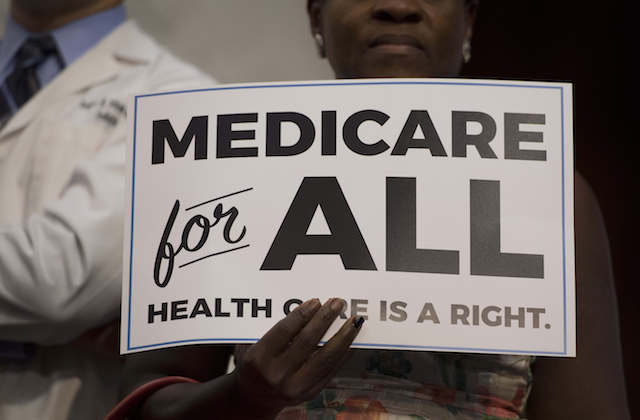A troubling report on racial inequities in the United States health care system was released Thursday (December 19) by The Century Foundation (TCF). The study, "Racism, Inequality, and Health Care for African-Americans," authored by TCF’s Director of Health Care Reform Dr. Jamila Taylor, shows that this inequality disproportionately affects people of color and other marginalized communities, but African Americans specifically “bear the brunt of the nation’s health care challenges.”
As the report states, although African Americans are living longer and most have some form of health insurance, it’s still true that they “experience illness and infirmity at extremely high rates and have lower life expectancy than other racial and ethnic groups.” According to the data, African Americans “are also one of the most economically disadvantaged demographics in this country.”
A summary of the report emailed to Colorlines sums up Dr. Taylor’s key findings:
rnt
- COVERAGE: The uninsured rate among African Americans is 9.7 percent, compared to 5.4 percent among Whites. African Americans are also more likely to be underinsured, and to reside in states that have rejected Medicaid expansion and in medically underserved areas.
rnt
- COSTS: Black households spend almost 20 percent of their income on health care annually, whereas the average American family spends around 11 percent.
rnt
- OUTCOMES: African-American women are three times more likely to die of pregnancy-related causes than white women, and the African-American infant mortality rate is two times the rate of White infants. African Americans are also more likely to die from chronic illnesses, including cancer and heart disease.
rnt
- SOCIAL DETERMINANTS: Racism negatively impacts African Americans’ health, both as a stressor leading to wear and tear on the body, as well as by limiting access to coverage. A lack of affordable housing and food insecurity also disproportionately hurt the health of African-American individuals.
rn
Dr. Taylor argues that some of the healthcare reform proposals being debated among the 2020 presidential campaigns, like Medicare-for-All, still “fall short in adequately addressing racism in the health care system." As a result, these public option plans fail to provide full coverage and the access to high quality care that African Americans require.
Strategies to close these equality gaps should focus on training a diverse and “culturally competent health care workforce” while managing premium costs and out-of-pocket expenditures, Dr. Taylor argues. “It is not enough for insurance coverage to be affordable or even ‘free,’” she states in the study. “It must also serve as a tool in progress toward systemic change and equity that will help African Americans get ahead.”
Read the full report here.
